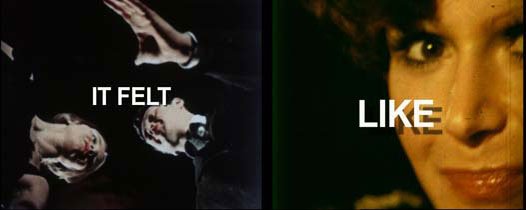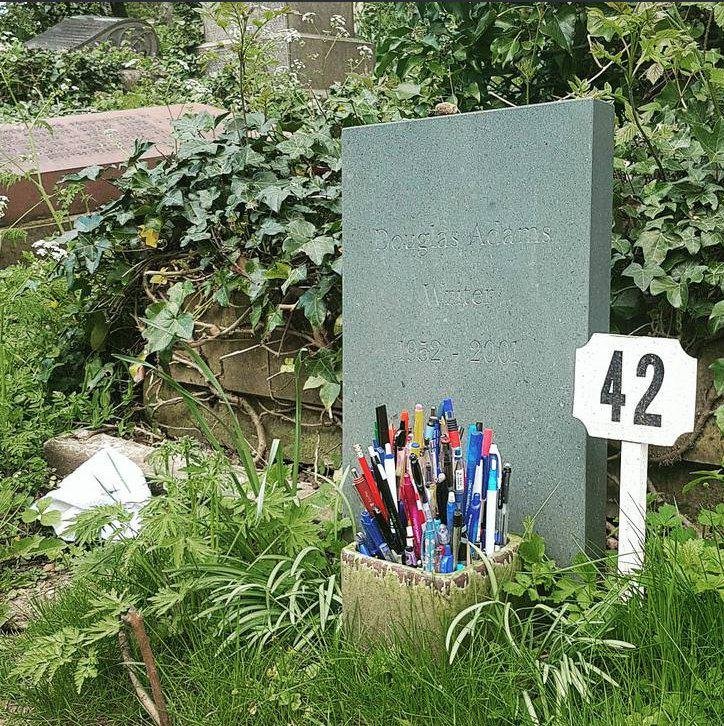The Hazy/Fluxy Mess We’re In
Creativity, Power & Feeling Through Precarious Times:
Writing alongside documentary filmmaker Adam Curtis’ Masterclass.
“It Felt Like a Kiss” Adam Curtis 2009
I recently attended a masterclass with Adam Curtis that had me at the edge of my seat, head in hands—fully absorbed, fully agitated. Curtis, known for his archival deep dives and layered, narrative-driven films (The Century of the Self, HyperNormalisation, Bitter Lake), resists calling himself an artist. Yet his work troubles the very territory that journalists, artists, cultural workers, and practitioners of the—let’s call them—therapeutic arts are drawn to and work from—no matter what they call themselves.
Hazy/Fluxy: The Space of Uncertainty
Curtis kept repeating this phrase—hazy/fluxy—in an unmistakable BBC voice, calling attention to the moment we’re living through. We are in transition, in a world thick with uncertainty—a sort of stuckness born of systemic feedback loops. It’s like we know there’s a way out if we could only find the door. He spoke to a feeling of melancholy, “yearning for something, but we don’t know how to get there.”
In the back of my mind, Patti Smith was singing, “People have the power.”
But in this “post-truth world,” journalism no longer holds—not because unbiased reporting isn’t vital, but because trust itself depends on shared agreements about reality.
And if spirituality—as a force for political engagement and a way through the dark—keeps getting flattened into AirBnB decor, distilled into IG psychology memes, or hijacked by the marketplace into passive, self-soothing distortions—where non-duality’s radical truths are repackaged into soundbites (“everything just is, so why resist?”), where interdependence is rewritten only as individual manifesting (“you create your reality”)—then its power isn’t gone, but it’s being misdirected.
A spirituality that only floats above the material world rather than engaging with it—entangled in the same neoliberal soup we’re all left stewing in—is of no use to us here in the hazy/fluxy.
Where does that leave us? How do we find agency and power in a world where narratives are manufactured, history is defunded, and the exits keep disappearing?
I wanted to ask Curtis a question about spiritual practice. Because what he was describing—these endless loops, these repeating cycles of failed revolutions, stalled change, the same power structures playing out in new disguises—sounded, to my buddhish educated bodymind, a lot like Samsara, the Buddhist concept of endless cycles of suffering, repetition, and illusion.
The closest he got to answering my unasked question was in response to another: Where do you find joy?
He told a story about his sci-fi book-loving mother, how she passed on (I think he actually said, forced) these books into his hands. Their shared midnight readings, huddled in the front room, imagining possible worlds by their own hearthlight. Momma and little boy Adam wondered things like: What if there are ETs in the room with us right now, but we just don’t have the proper bits to perceive them?
In the back of my mind, Octavia Butler, appropriating Ecclesiastes, was saying: “There is nothing new under the sun, but there are new suns”.
Power and the Archive
One of the sharpest moments came from an audience member who asked how filmmakers are supposed to make work like his when BBC archive footage costs £500 per two seconds. Curtis, who has unrestricted access to the archive, acknowledged the power imbalance. He mentioned an initiative to get footage into the hands of African and African-English filmmakers—but the larger question remains: who controls access to the past? Who decides what is seen, what is preserved, who gets to take it chop it up Adam Curtis style, and what is barred behind paywalls?
The conversation about power deepened when Curtis mentioned Elon Musk—not as a visionary but as someone playing a high-stakes media (and power) game. And this isn’t new. You can watch how Freud’s cousin, Edward Bernays, played a game like this in 1940s America—using Sigmund’s ideas about man’s destructive animal impulses to turn propaganda into public relations. Curtis lays it all out in The Century of the Self, Part One (YouTube has it). I highly recommend having a watch. The tactics remain the same—the players change.
And now, as I write this, I’m hearing the tune History Repeats Itself, from the Natural Born Killers soundtrack.
Apparently, someone close to Musk tipped Curtis off: the Mars project isn’t about actually going to Mars; it’s about pwning the libs, about flooding the zone. Curtis laughing said, “ I mean, who wants to go to Mars? We’ve all seen Total Recall.” The real game isn’t technological progress— or benefit for more of who we are, it’s controlling the story. Flood the zone, manufacture the spectacle, keep everyone scrambling for meaning, forsaking our own power to live and act up, trading it for dream of death. So the question now becomes one we’re already very familiar with down here in samsara - how do we get out while staying meaningfully in?
A WORD
Curtis maps history through film, looping patterns, showing us how we got here. Might creativity, speculative fiction and earnest spiritual practice also generously point the way into new worlds? where we might go—or where else we may already be from where we currently are.
“So Far”, as Donna Haraway (of Cyborg Manifesto fame) describes it, includes “speculative fabulation, science fiction, science fact, speculative feminism, son de ficelle” (French: “sound of string”).
This piece is a response, but also a practice in its own right. Performance theory might call it writing alongside. Sitting with uncertainty, weaving threads of “So Far”, tracing power, listening for what is missing.
I’ve read and listened to Adams read The Hitchhiker’s Guide to the Galaxy too, Elon. I know you admire Douglas Adams. But you seem to have missed the humility in it—the part where speculative fiction isn’t a blueprint for escape but an invitation to ask better questions that imagine better worlds for more of us, not less.
Last year, I visited Douglas Adams’ grave in Highgate Cemetery. Instead of flowers, there was a vase filled with pens. Because more than one man, more than a handful of billionaires, are writing the future into being.
So, I guess what I mean to say is—we read sci-fi too, Big E.
And maybe more than that, I mean to remind us to keep reading, keep writing, keep making moving pictures.
We’ve always been listening to the sounds of other worlds.
It’s what we do.
Speculative fiction, spiritual practice, and creative work—they aren’t only ways to imagine a way out. They’re also ways to perceive what’s already here in a fresh way. There are meaningful ways to move toward something that’s here in us as hazy/fluxy, but we can’t quite name. Philosopher and psychotherapist Gendlin calls this the Felt Sense (something I’ll be elaborating on in part two of this piece)
We’re still writing.
The artist’s job, joy, and spiritual practice is to attend to that missing—to make something from the belly of the hazy/fluxy, and as Curtis puts it - the artist job is to “play us back to ourselves”.
Stay hungry for the cracks in the old maps of control, and bow deeper- there’s always more here than we know.






